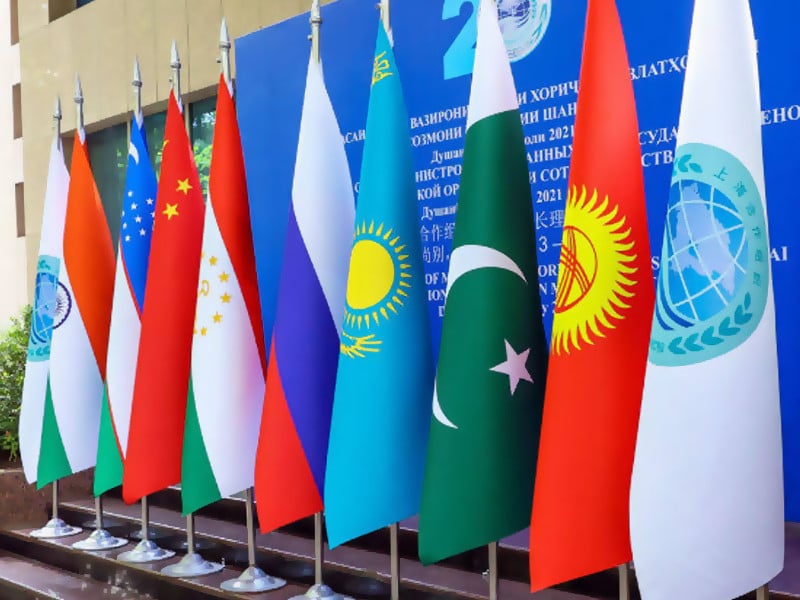During the summit, eight important agreements were signed, addressing the SCO’s budget, the functioning of its secretariat, and regional counterterrorism efforts. These agreements, signed on Wednesday, underscore the organization’s commitment to collaboration in security, trade, and economic development.
Chaired by Pakistan’s Prime Minister Shehbaz Sharif, the summit saw member states reaffirm their dedication to fostering regional peace, political stability, and socio-economic cooperation.
Leaders also acknowledged the need for enhanced collaboration in science, technology, the digital economy, and information security.
Participants supported UN General Assembly resolutions aimed at promoting global peace and development. The 23rd Shanghai Cooperation Organisation (SCO) summit commenced in Islamabad earlier that day, with Prime Minister Shehbaz Sharif delivering the keynote address at the Jinnah Convention Centre.
Held under tight security, the summit welcomed leaders and representatives from across the region, focusing on strengthening cooperation and trade.
Upon arrival, Prime Minister Sharif was greeted by senior officials before presenting his opening remarks to the SCO Council of Heads of Government, as reported by Express News.
Key attendees included Chinese Premier Li Qiang, Russian Prime Minister Mikhail Mishustin, and leaders from Tajikistan, Kyrgyzstan, Belarus, Kazakhstan, Uzbekistan, and Iran. India was represented by External Affairs Minister S. Jaishankar, while Mongolia participated as an observer, represented by its Prime Minister.
Discussions during the summit centered on critical regional issues such as trade, security, and cooperation among SCO member states, setting the stage for the official declaration that confirmed China’s endorsement as the chair for the 2024-25 term. It was also agreed that the next summit would be held in Russia.
The summit concluded with the signing of the eight key documents, focusing on the SCO’s budget, secretariat operations, and counterterrorism efforts, highlighting ongoing collaboration among member states in vital areas.
Prime Minister Shehbaz Sharif presided over the meeting, attended by leaders from China, Russia, India, Iran, Uzbekistan, Tajikistan, Kyrgyzstan, and other SCO member nations.
During discussions, the leaders reviewed the implementation of decisions made at the previous summit in Astana and reaffirmed their commitment to resolving regional disputes through dialogue and negotiations.
Participants emphasized the importance of cooperation in various sectors, including politics, security, trade, and investment, while supporting UN resolutions promoting peace and development. The summit wrapped up with a formal luncheon honoring the visiting delegates, marking a successful gathering focused on strengthening regional ties.
Bilateral Meetings Focus on Trade and Cooperation
On Tuesday, Prime Minister Shehbaz Sharif held bilateral meetings with his counterparts from SCO member states gathered in Islamabad for the Heads of Government meeting. He met with Prime Ministers Roman Golovchenko of Belarus, Qohir Rasulzoda of Tajikistan, Olzhas Bektenov of Kazakhstan, Akylbek Japarov, the Cabinet Chairman of Kyrgyzstan, and Rashid Meredov, the Deputy Chairman of the Turkmenistan Cabinet.
During these meetings, Prime Minister Shehbaz called for ongoing exchanges between SCO member states to unlock the potential for bilateral cooperation across various fields, as stated in a press release from the Prime Minister’s Office. Discussions focused on enhancing trade, investment, and regional connectivity.
In his meeting with Belarusian Prime Minister Golovchenko, Shehbaz explored opportunities for cooperation in trade, investment, agricultural machinery, and joint tractor production. He welcomed Belarus’s participation in the SCO meeting and reiterated Pakistan’s commitment to working closely with Belarus to promote the “Shanghai Spirit.”
Conversations with Central Asian leaders included strengthening cooperation in trade, investment, and regional connectivity. In his meeting with Rasulzoda, Shehbaz emphasized the importance of enhancing bilateral collaboration across all areas of mutual interest, including trade, energy, and regional connectivity.










